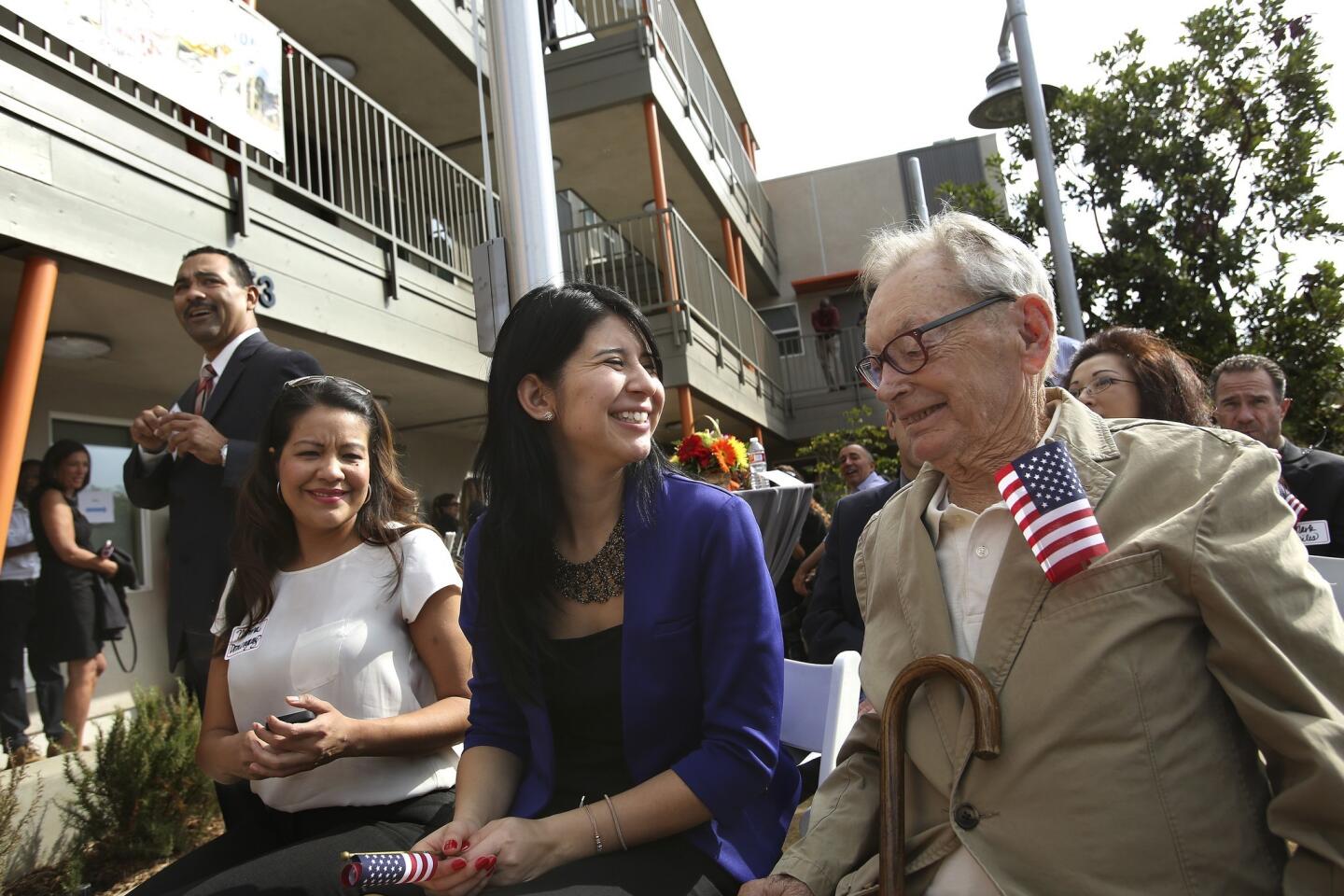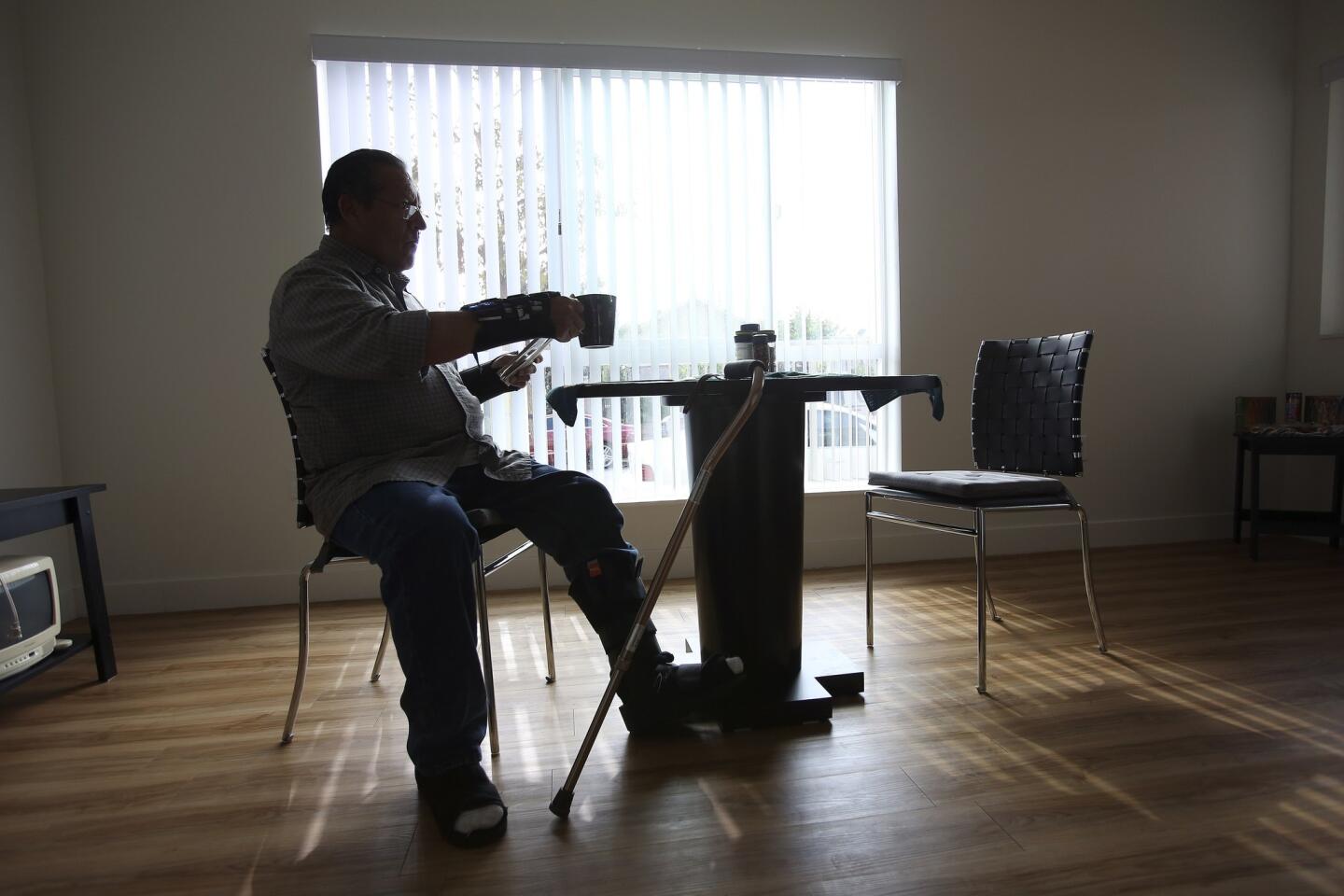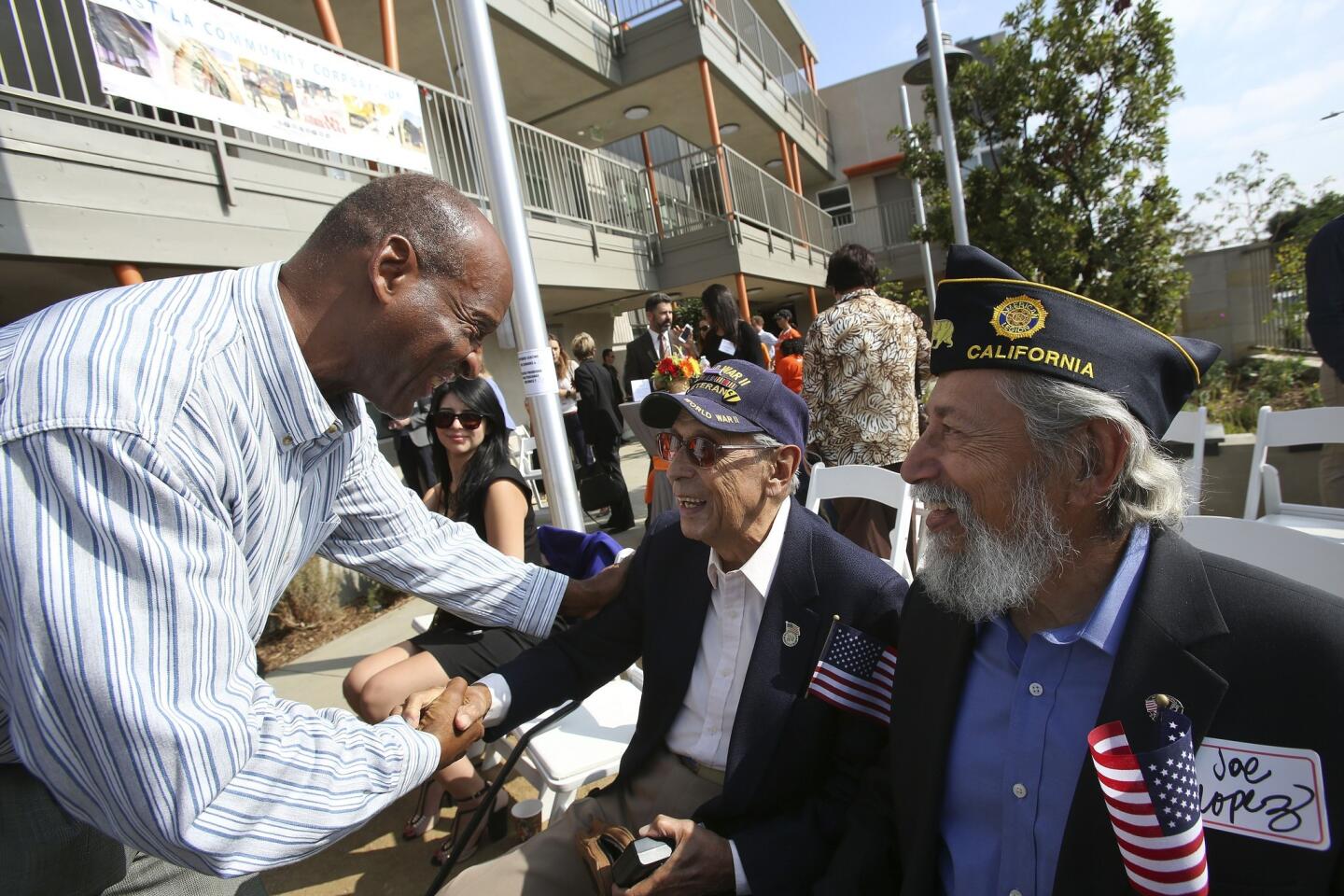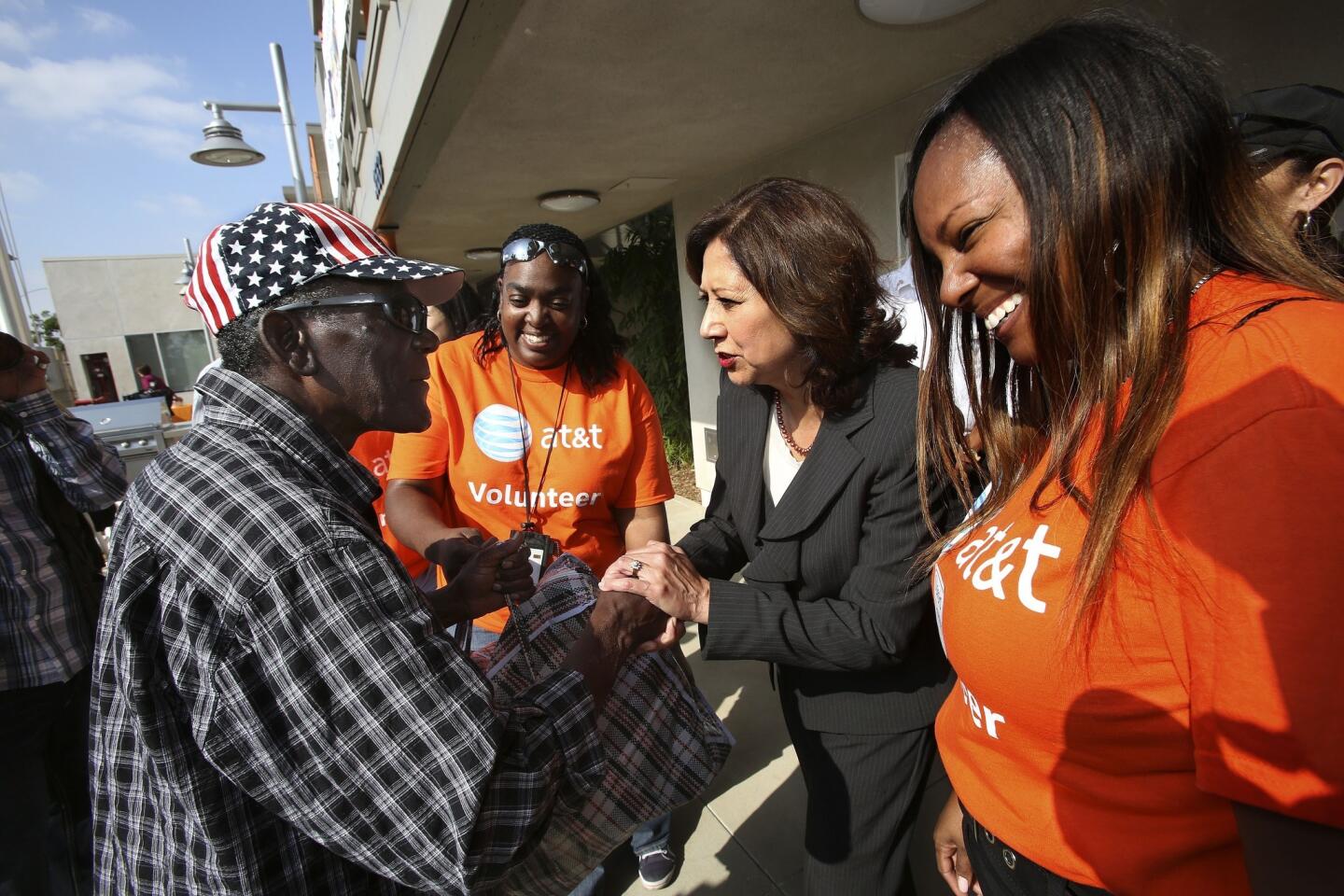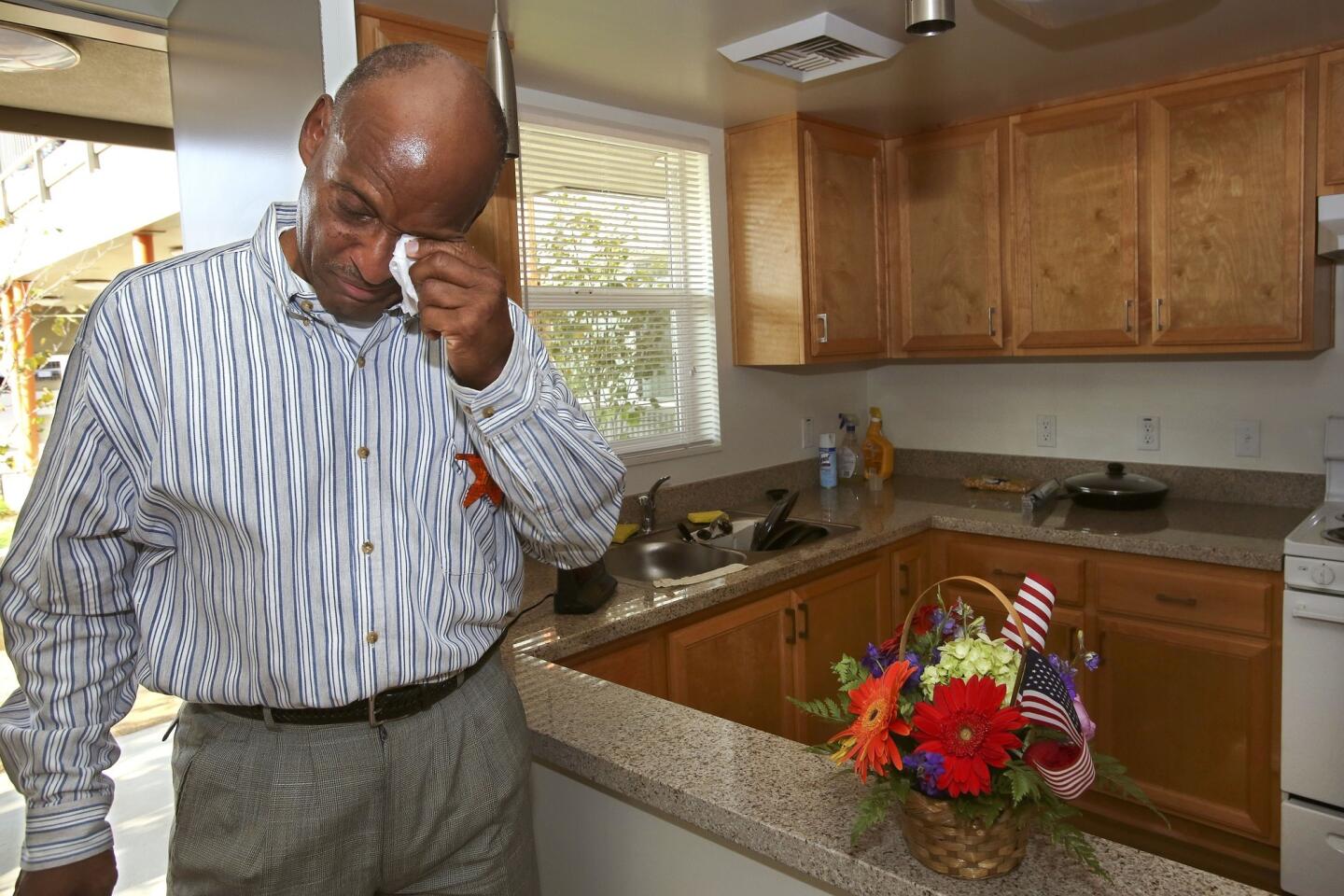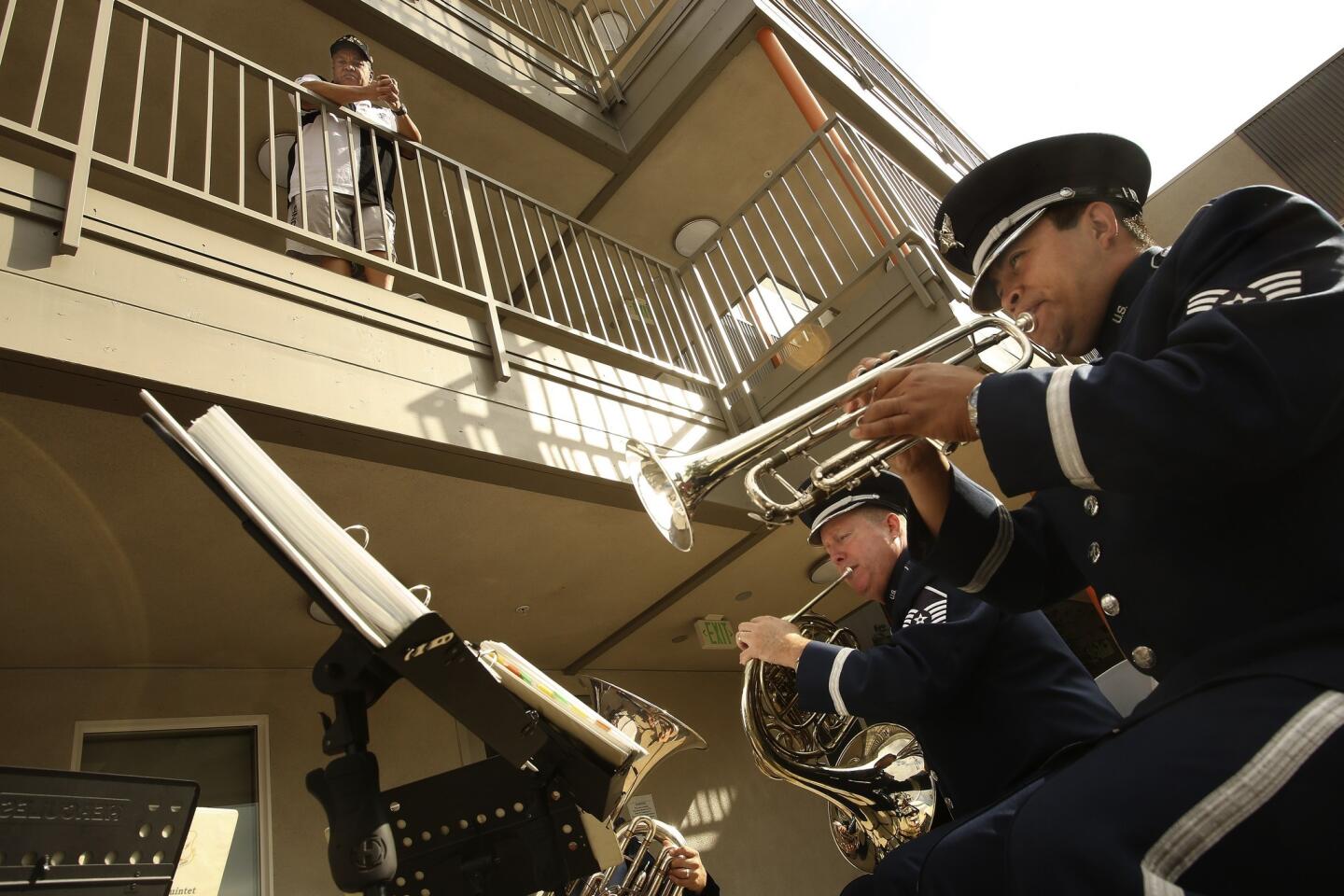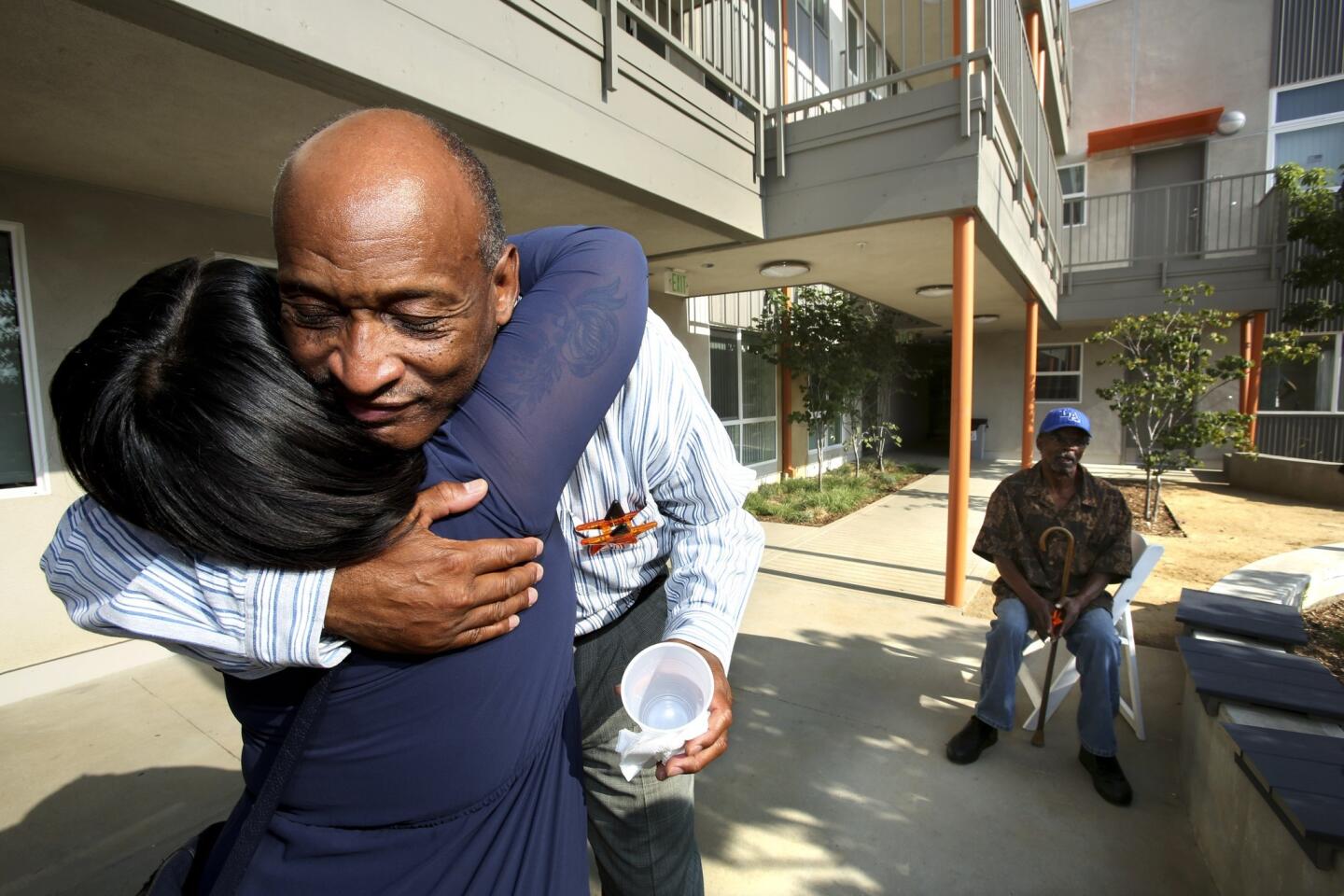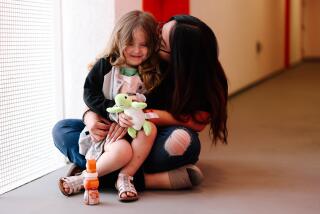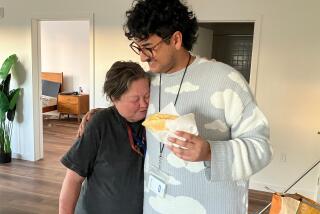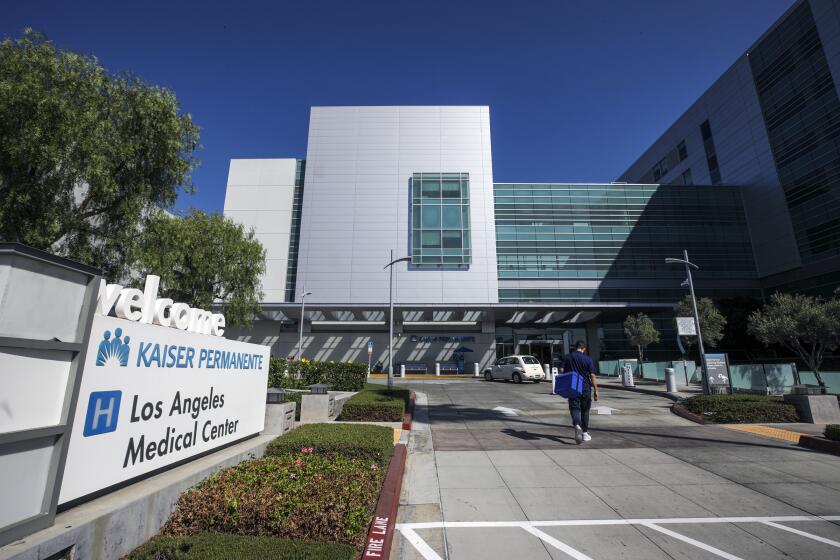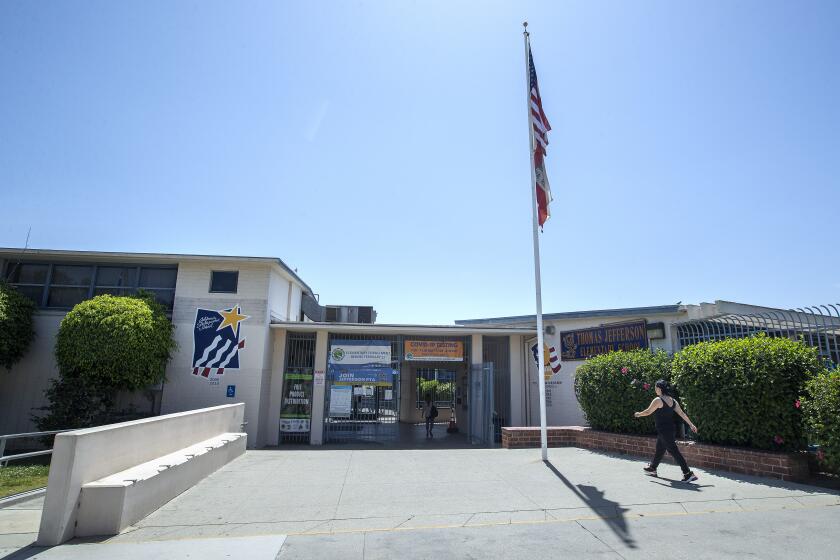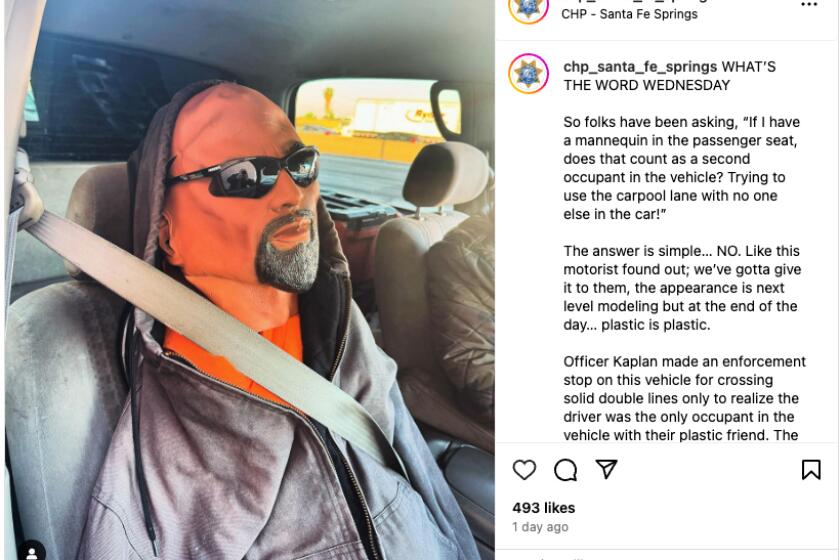Once homeless, veterans find refuge in Eastside housing complex
Harry Jones’ most-prized possession is a big brown sofa, with plenty of room for two. But it sits unused half the time because the 64-year-old veteran prefers to stand across the room, where he can better admire it.
“It’s so nice,” he said. “Now I just need to get a few more pieces so it’s not so lonely.”
For the first time in 30 years, Jones said, he has a place to sit — and a place to call home. On Monday, he and 31 other veterans celebrated the opening of the Guy Gabaldon Apartments, the first affordable housing development for homeless senior veterans on the Eastside.
The three-story gray-and-orange building features sleek, light-filled one-bedroom apartments, each with a bed, a dining room table and granite countertops in the kitchen. There are courtyards and a multipurpose room with a big-screen TV and a treadmill. Large planters soon will hold the tenants’ vegetable garden.
The $13-million project, financed through a mix of state and local dollars, aims to help veterans in neighborhoods such as Boyle Heights and East L.A., where more than 800 are estimated to be homeless.
Across Los Angeles County, officials said, there are about 6,000 homeless veterans. But there is potential for those numbers to climb as discharged military personnel return from duty in Iraq and Afghanistan, only to struggle.
With President Obama vowing to end homelessness among veterans nationwide by 2016, and Mayor Eric Garcetti echoing that pledge for Los Angeles, officials said public-private partnerships have plans to spend more than $300 million in L.A. County to make housing more available.
Part of that effort is the downtown Rosslyn Hotel, where a recent $32-million renovation has provided apartments for 75 former service members.
On Monday, dozens gathered at the new Eastside complex to honor its residents — as well as the memory of Guy Gabaldon, an 18-year-old Marine from Boyle Heights credited with capturing more than 1,500 Japanese soldiers during World War II.
Many of the tenants were just getting acquainted with their surroundings. Like college students, they were starting anew, with so much space to fill and so few belongings. Some had struggled on the streets for years, lost in drugs or alcohol, sleeping in shelters, alleys and beaches. Others had stable jobs that disappeared with the economic downturn.
Jones used to camp out in a tent on skid row.
Every night, he said, he had to watch his back and his possessions. Now his pots and pans were neatly stored in cupboards, his blanket draped over his bed. Four walls — clean and white — surrounded him.
“I don’t ever plan to hang anything, because I don’t want to mess them up,” the Vietnam War veteran said.
Aside from housing, veterans at the complex will have access to services including financial planning, job search assistance and credit restoration. Residents will pay for the apartments with federal vouchers.
“This is a place where these veterans can return to their community and live with dignity in old age,” said Maria Cabildo, president of the East Los Angeles Community Corp., the nonprofit developer that led the project with help from New Directions for Veterans, a Brentwood-based group.
Inside every apartment Monday, there was a story.
Gabriel Vigil, 56, of Long Beach had been homeless for 11 years. After serving in the Army in the early 1980s, he divorced and ended up at his parents’ home. After they died, he found himself living on the streets, addicted to drugs and alcohol.
Colon cancer forced him into the hospital last year; there he was put in touch with the veterans’ aid group that led him to the Guy Gabaldon Apartments.
“I would be dead by now if I wasn’t here,” Vigil said, sitting at a dining room table neatly decorated with butterfly-adorned place mats that he bought at the 99 Cent store.
Jamal Haqq, 63, said he was doing just fine until 2012. The former Marine had a college degree and his own marketing business. But it shut down during the recession and, for the first time in his life, Haqq was homeless and unable to find work.
Not wanting to impose on relatives, Haqq said, he would sneak onto college campuses to find quiet, safe places to sleep or stay up all night at 24-hour fast food restaurants. He said he never touched drugs or alcohol.
“You get to a point where you literally run out of options,” the veteran said.
Sitting at his new dining room table by the window, he looked around his spacious living room. He now owns a bicycle, a clock and an analog television — a donation from a fellow veteran and neighbor.
“People ask me how I feel, and you know what I tell them?” Haqq said. “Resurrected.”
esmeralda.bermudez@latimes.com
Twitter: @LATbermudez
More to Read
Start your day right
Sign up for Essential California for news, features and recommendations from the L.A. Times and beyond in your inbox six days a week.
You may occasionally receive promotional content from the Los Angeles Times.
